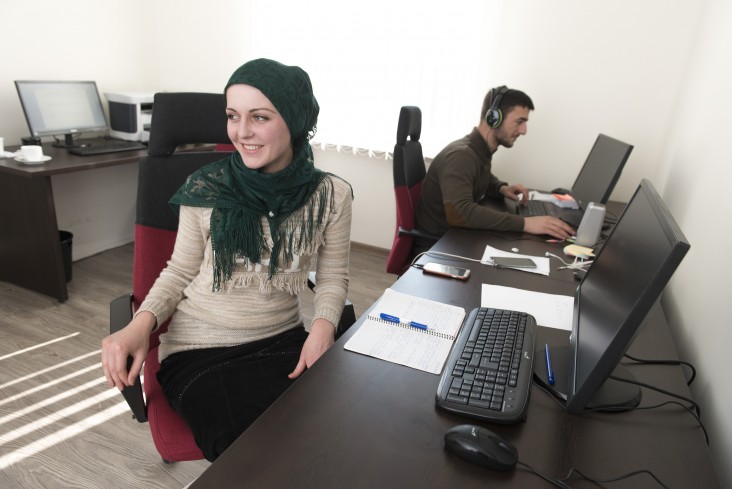
"I had a difficult path due to criticism from some members of the community saying that journalism is not something Kist women should do. It was not easy, but soon community members saw the positive side of it." —Zarema Ididze, training Radio WAY Citizen Reporter
Georgia’s Pankisi Gorge is a region that attracts a lot of outside attention. In a picturesque valley situated northeast of Georgia’s capital Tbilisi, the community is predominantly inhabited by Kists, an ethnic minority group with Chechen roots. Recently, the region made international news due to reports of local inhabitants, including teens, joining the so‐called Islamic State in Syria. The phenomenon raised concerns about the threat of youth radicalization in this remote corner of Georgia. The Pankisi Gorge offers few economic opportunities and has an estimated unemployment rate of 90%. Youth empowerment and poverty alleviation programs, as an antidote to radicalization, are critical development goals for the Government of Georgia and the international community.
To address these challenges, USAID’s Advancing CSO Capacities and Engaging Society for Sustainability (ACCESS) project, implemented by East‐West Management Institute, is partnering with a local grassroots organization, the Center for Civic Activities (CCA). Building on the trust cultivated in this isolated community over many years, CCA is undertaking small but effective youth‐focused civic engagement initiatives. For example, a group of competitively selected young people participated in an intensive course on citizen journalism. As a result, Pankisi’s newly minted youth press corps is producing multimedia reports and blogs on issues of local concern. They are publishing their stories through the most popular online media source in the Kakheti region of eastern Georgia—the Information Center Kakheti news website.
With support from multiple donors, CCA launched a bilingual (Georgian‐ Chechen) community radio station, called Radio WAY, and employs its citizen reporters to produce stories that highlight the religious and cultural diversity of the region. By engaging young people in constructive activities that build bridges between Pankisi and larger Georgia, USAID and its local partners seek to reduce the threat of radicalization. As 24 year old Zarema Ididze, one of the trained reporters, shares, “Before starting my work at the Radio, I was thinking of leaving Georgia… I considered it the only way out of my situation. Now, I have more responsibilities in my community. I want to challenge and reverse negative stereotypes about Pankisi and show others my nation and my Gorge from a different perspective ... Radio WAY will allow us to do this.”
Radio WAY and journalism training are just two examples of many potential civic activities that can open up new possibilities for young people in this historically marginalized region of Georgia. USAID’s ACCESS project will continue to work with Georgia’s civil society and the Georgian government to expand this important work.







Comment
Make a general inquiry or suggest an improvement.